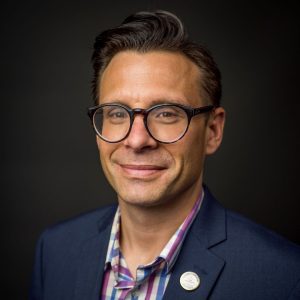A recent Wall Street Journal article outlined the growing tension on college campuses about free speech. How ironic—institutions founded to exchange and analyze ideas are now under fire for suppressing certain viewpoints. Donors are pushing back.
Cornell University is one example. They asked a California alum for a seven-figure gift. He balked, citing his growing concern about declining tolerance for conservative viewpoints at Cornell. The development office countered by setting up meetings for the donor with moderate professors. That backfired when they told him “they felt humiliated by the diversity training they were required to attend and perpetually afraid they would say something factual—but impolitic.”
The same article cited examples at multiple universities where donors are withholding gifts to pressure administrators to promote free speech on campuses. How significant is the problem? One national survey, which covered more than 37,000 students at 159 colleges, found that 66% of students said it is “acceptable to shout down a speaker to prevent him or her from speaking on campus.” In addition, 23% said it was “acceptable to use violence to stop a campus speech.” Students do not express these sentiments in a vacuum. In large part, they are reflecting the perspective of their teachers.
For the most part, it is conservative students and faculty who are caught in this crossfire. Standing up for historic, reasonable, commonly held positions on marriage, gender, and sexual expressions may get you shouted down. Demanding an end to racism, without dismantling judicial systems may lead to being assaulted. It’s doubtful promoting opposing positions would result in the same reaction.
Rather than decry these developments and shun secular campuses, we must lean into them with new efforts to reach and teach college students the gospel—and the implications of living out the gospel in their context. Collegiate ministry is now on the front line of the culture wars, with Christian students caught in the crossfire. We cannot retreat from aggressive efforts at collegiate ministry on college campuses—particularly large, secular campuses.
Your church may not have a large number of college students, but you can find a way to be involved. Reach out to your local campus ministry leaders or denominational leaders who can connect you to them. Discover their needs and get involved. You may not be a frontline apologist who can answer difficult questions from college students, but you can be part of the support system to keep one of these workers on the job. In addition, we must loyally support Christian colleges and universities which promote our worldview while allowing open debate of all ideas.
College campuses, in many cases, are bastions of secularism and liberalism—the perfect place to do gospel ministry. Let’s find more ways to move forward and support the people who are leading in these challenging settings.
Read More

Hope in Suffering
Gateway student Matt Bodden is an evangelist who is ready to answer the question of suffering with the gospel.

The Gateway Journal of Theology Inaugural Issue
Read all new articles in the inaugural issue of The Gateway Journal of Theology.
Listen
Prophets | Daniel Part 2
Now with the historical portion of Daniel done, Dr. Wegner takes us through the visions of beasts and years. All these figures intending to show us something. What does it all tell us about God?

Theology and Missiology with Dr. Peter Lillback
Rev. Dr. Peter Lillback, president of Westminster Theological Seminary, PA, and founder of The Providence Forum, joins Dr. Hopkins to chat about the inclusion of young children during the main services in church, the religion and theology of George Washington, and the

Watch

Jonathan Edwards and the Asbury Revival
Chris Chun and Chris Woznicki discuss the signs of true revival, signs of the work of the Holy Spirit, and why it is important to critically assess the characteristics of revival in a spirit of charity.

Jonathan Edwards and the Baptists | Douglas Sweeney, Nathan Finn and Chris Chun
Dr. Douglas Sweeney and Dr. Nathan Finn joined Dr. Chris Chun for a panel discussion on Jonathan Edwards, recorded live at the SBC Annual Meeting in Anaheim.




